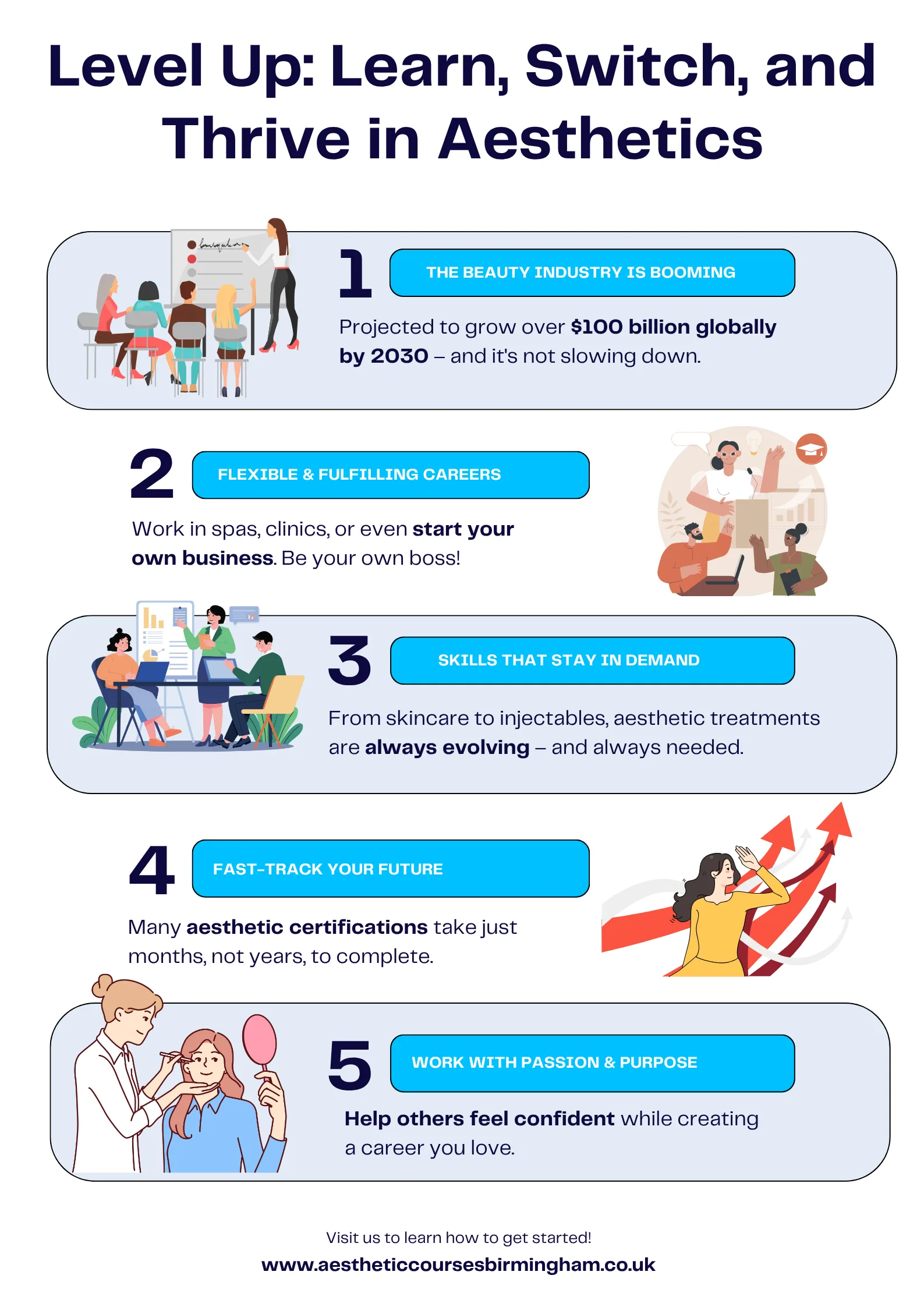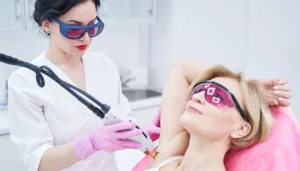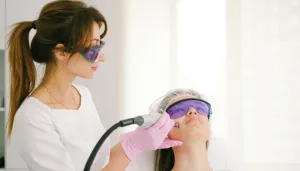
Considering a career change and looking for a path that’s both fulfilling and future-focused? Aesthetics is a fast-growing industry offering exciting opportunities for those ready to start fresh.
The right training can open doors to a successful new chapter. In this post, we’ll explore the best aesthetic courses designed specifically for career changers—practical, professional, and built to help you succeed.
Key Takeaways
- Aesthetic courses are available for all levels, from complete beginners to experienced professionals.
- Specific courses cater to different backgrounds, like nurses or beauty therapists, making career changes smoother.
- Many training options exist, including those focused on beauty treatments, practitioner skills, or specialised procedures like fillers.
- Birmingham is a notable location with various aesthetic training providers.
- Choosing the right course depends on your current experience and what you want to do in the aesthetics field.
1. Aesthetic Practitioner Courses
Aesthetic practitioner is a field with lots of potential, and the right training can really set you up for success. Let’s have a look at what kind of courses are out there.
When you’re looking at aesthetic practitioner courses, it’s easy to feel a bit lost. There are so many options, and it’s not always clear what’s what. The key is to find a course that not only teaches you the practical skills but also gives you a solid understanding of the theory behind them.
Here’s a few things to consider:
- Level of Qualification: Are you looking for a Level 4, 5, or even 7 qualification? This will depend on your current experience and where you want to be in your career.
- Course Content: Does the course cover the specific treatments you’re interested in, like botulinum toxin or dermal fillers?
- Accreditation: Is the course accredited by a recognised body? This is important for insurance and credibility.
- Practical Experience: How much hands-on training will you get? You’ll want plenty of opportunities to practise on real clients.
Choosing the right aesthetic practitioner course is a big decision, but with a bit of research, you can find one that’s perfect for you. Don’t be afraid to ask questions and compare different options before making a choice.
It’s also worth thinking about whether you want to specialise in a particular area of aesthetics. Laser treatments, for example, require specific training, and there are courses dedicated to this. Similarly, if you’re interested in more advanced procedures, you’ll need to look for courses that cover those topics in detail.
Ultimately, the best aesthetic practitioner course for you will depend on your individual goals and circumstances. But with the right training, you can build a rewarding and successful career in this exciting field.
2. Aesthetic Beauty Courses
There are courses out there to suit different needs and levels of experience.
These courses are generally focused on beauty treatments rather than medical procedures. Think things like advanced skincare, microblading, or lash extensions. They’re a good option if you’re already working in the beauty industry and want to add to your skillset, or if you’re looking for a career change that doesn’t require a medical background.
Choosing the right course really depends on what you want to achieve. Do some research, compare course content, and read reviews. It’s worth taking the time to find a course that aligns with your career goals.
Here’s a few things to consider:
- Course Content: What specific treatments are covered? Does it align with your interests?
- Accreditation: Is the course accredited by a recognised body? This can affect your ability to get insurance and work in certain clinics.
- Prerequisites: Does the course require any prior qualifications or experience?
3. Aesthetic Courses For Nurses
For nurses looking to expand their skill set and career options, aesthetic courses can be a fantastic choice. Nurses already possess a strong foundation in anatomy, physiology, and patient care, which makes them well-suited for the aesthetic field.
These courses build upon existing knowledge, providing specialised training in cosmetic procedures. This allows nurses to confidently and safely administer treatments like Botox, dermal fillers, and laser therapies.
Many training providers recognise the value of a nursing background and tailor their courses to suit the needs of registered nurses. This often means a faster learning curve and a greater understanding of the medical aspects of aesthetic treatments.
Nurses bring a unique perspective to the aesthetics industry. Their commitment to patient safety and ethical practise is invaluable. By undertaking aesthetic training, nurses can enhance their careers and provide high-quality cosmetic treatments to their patients.
Here’s what you might expect from an aesthetic course designed for nurses:
- Advanced injection techniques
- Management of complications
- In-depth knowledge of facial anatomy
- Understanding of different skin types and conditions
- Client consultation and assessment skills
4. Aesthetic Courses For Beauty Therapists
Many courses are designed specifically to build upon your current knowledge. This means you might not have to start completely from scratch. Think of it as levelling up your existing skills.
Here’s what you should consider:
- Entry Requirements: Check what qualifications you need. Some advanced courses might require a Level 3 in Beauty Therapy, for example.
- Course Content: Make sure the course covers the specific treatments you’re interested in, like injectables, skin rejuvenation, or laser treatments.
- Accreditation: Look for courses that are accredited by recognised bodies. This ensures the training is of a high standard and recognised within the industry.
It’s worth doing your research and speaking to different training providers to find the course that best suits your needs and career goals. Don’t be afraid to ask questions about the course content, teaching methods, and accreditation.
Adding aesthetic treatments to your skillset can really open doors. It’s a chance to increase your earning potential and offer a wider range of services. Plus, it keeps your career interesting and challenging!
5. Aesthetic Courses For Beginners

So, you’re thinking about getting into aesthetics but have zero experience? No worries, loads of people start exactly where you are. It can feel a bit daunting, but there are courses specifically designed to give you the basics.
These courses usually cover:
- Basic anatomy and physiology – understanding how the skin and face work is pretty important.
- Hygiene and safety protocols – gotta keep things clean and safe for everyone.
- Introduction to different treatments – like Botox, fillers, and skin rejuvenation. You’ll get a taste of what’s out there.
- Hands-on practise – usually on mannequins or models, so you can get a feel for the techniques.
Don’t expect to become an expert overnight. Beginner courses are all about building a solid foundation. It’s like learning to drive – you start with the basics before hitting the motorway. The key is to find a reputable training provider who offers comprehensive support and guidance.
It’s also worth checking if the course offers any kind of certification upon completion. This can be helpful when you’re looking for work or further training. Starting with a solid beginner course can really set you up for success in the long run.
6. Advanced Aesthetic Courses
These aren’t your beginner-friendly introductions; they’re designed for practitioners who want to master complex techniques and offer a wider range of treatments. Think of it as going from driving lessons to Formula 1.
These courses often focus on:
- Advanced injection techniques (like cannula use).
- Combination therapies (using multiple treatments for enhanced results).
- Managing complications (because let’s face it, things don’t always go to plan).
- Staying up-to-date with the latest research and innovations.
It’s important to remember that advanced courses usually require a solid foundation of knowledge and experience. You’ll typically need to show proof of prior training and a certain level of practical experience before you can even sign up. This ensures everyone in the class is at a similar level and can get the most out of the training.
Basically, if you’re ready to push your skills and offer cutting-edge treatments, advanced aesthetic courses are the way to go. They can open doors to new opportunities and help you stand out in a competitive field.
7. Aesthetic Filler Courses
This course is a highly popular area within aesthetics, and there’s a real demand for skilled practitioners. These courses focus specifically on dermal fillers, which are used to reduce wrinkles, enhance facial contours, and add volume.
When choosing a filler course, it’s important to consider a few things.
- First, what’s your current level of experience?
- Are you a complete beginner?
- Do you have some existing knowledge of aesthetics?
This will help you determine the right course for you. Second, what areas of the face are you most interested in treating? Some courses cover a wide range of treatments, while others focus on specific areas, like lips or cheeks. Finally, check the credentials of the training provider. Make sure they’re reputable and that the course is accredited.
Filler courses usually include a mix of theory and practical training. You’ll learn about facial anatomy, different types of fillers, injection techniques, and how to manage complications. You’ll also get the chance to practise your skills on live models, under the supervision of experienced trainers.
Here’s a quick rundown of what you might expect from a typical filler course:
- Anatomy and Physiology: Understanding the facial structure is key.
- Product Knowledge: Learning about different types of fillers and their uses.
- Injection Techniques: Mastering the art of injecting fillers safely and effectively.
- Complication Management: Knowing how to deal with any potential problems.
8. Aesthetic Training Courses For Non-Medics
While some advanced procedures are restricted to medical professionals, there’s a growing range of aesthetic training courses designed specifically for non-medics. These courses focus on treatments that fall within the scope of practise for beauty therapists and other qualified individuals.
It’s all about finding the right course that aligns with your current qualifications and career goals.
Here’s what you need to consider:
- Entry Requirements: Check what qualifications you need to enrol. Some courses might require a Level 3 beauty therapy qualification as a starting point.
- Course Content: Make sure the course covers the specific treatments you’re interested in, like microblading, dermaplaning, or certain types of skin rejuvenation.
- Accreditation: Look for courses that are accredited by recognised bodies. This ensures the training meets industry standards and is insurable.
It’s important to do your research and choose a reputable training provider. Look for reviews and testimonials from previous students, and don’t be afraid to ask questions about the course content and the qualifications of the trainers.
Starting an aesthetics career without a medical background might mean a slightly different path, but it’s definitely achievable with the right training and dedication. Good luck!
Conclusion
Changing careers is a bold move—and choosing aesthetics can open the door to a fulfilling and in-demand profession. The right course will give you the skills, confidence, and credibility to succeed.
Make sure to train with an accredited provider so your qualifications are recognized and trusted across the industry. With the right start, your journey into aesthetics can be both exciting and rewarding.
Frequently Asked Questions
What are aesthetic courses all about?
Aesthetic courses are training programmes that teach you how to do beauty treatments like special facials, skin peels, and injections to make people look younger or improve their appearance. They cover things like how to use different products and tools, how to keep things clean and safe, and how to talk to clients.
Can someone with no experience take aesthetic courses?
Yes, absolutely! Many aesthetic courses are designed for people who are new to the field. These beginner courses teach you all the basics, from understanding the skin to learning simple treatments. You don’t need any prior experience to start.
How long do these aesthetic courses usually take?
The time it takes to finish an aesthetic course can be different. Some short courses might only take a few days or weeks, while more complete programmes could take several months. It really depends on how much you want to learn and what kind of treatments you want to be able to do.
What kind of jobs can I get after taking an aesthetic course?
After finishing an aesthetic course, you could work in a beauty salon, a special clinic, or even start your own business. You could offer services like anti-wrinkle injections, dermal fillers, or advanced skincare treatments. The goal is to help people feel better about how they look.
How do I know if an aesthetic course is good and proper?
It’s super important to pick a course that is properly approved and recognised. This means the course meets certain standards and that the skills you learn will be accepted in the industry. Always check for accreditations from official bodies to make sure you’re getting good training.
How much do aesthetic courses cost?
The cost of aesthetic courses can change a lot depending on what you’re learning and where you’re studying. Basic courses are usually less expensive than advanced ones that teach more complex procedures. It’s a good idea to look around and compare prices, and also see if they offer payment plans.







